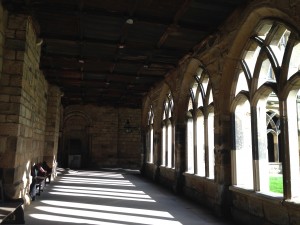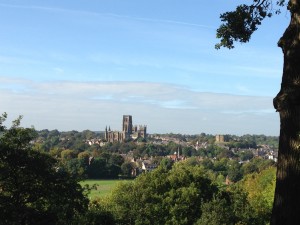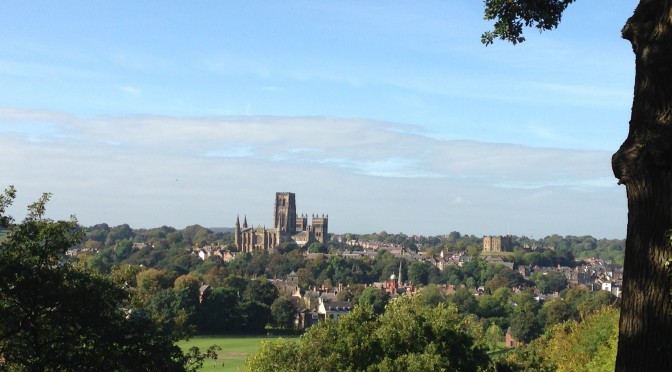by Katja Kujanpää
The CSTT is all for internationality. Accordingly, I will spend the whole second year of my PhD programme at the Durham University in northern England. After the first three and a half months of the exchange year it is possible to share some preliminary impressions.
Durham is a lovely medieval town. On my second day there I walked through an archway and found myself in a corridor of Hogwarts – some scenes of the Harry Potter films have been shot in Durham.

The enormous Gothic Cathedral is the centre of the town: it is visible from everywhere and the chiming of its bells gives rhythm to life.

The university is scattered all over the town in both medieval and modern buildings. As a town, Durham is minuscule, and it appears that all social activities are somehow connected to the university – a perfect academic bubble. The college system means that also PhD students are automatically part of a lively community that offers all kinds of social and academic activities from rowing team to interdisciplinary research evenings.
The department of Theology and Religion is one of the largest departments of theology in the UK. On postgraduate level it is also very international, and there are especially many North American PhD students. I was drawn to Durham because of its famous Pauline scholars, before all Professor John Barclay and Professor Francis Watson. I am one of the few New Testament scholars in the CSTT, studying Paul’s use of explicit quotations as part of his argumentation in Romans, and I felt it was time to have a real Pauline year.
One ideal of the CSTT is to be a ’research community’. In Durham I have experienced what that could mean. In the New Testament Studies, the research seminar brings every week together professors, post-docs, PhD students and interested Master’s students. Usually someone gives a paper, and there is plenty of time for discussion and comments. It is an important forum for PhD students to enhance their academic skills, to get acquainted with senior scholars, and to be socialized into the academia. It is also meeting place that brings academics together.
On abroad, in a different academic environment, one is constantly challenged: challenged by the everyday things of a different university culture, starting with a very different Hebrew pronunciation or opening the old-fashioned lock of the office door. But also by the more fundamental but implicit questions: what is the function of the discipline of biblical studies, what is it aiming at, and what is its relation to “biblical theology” on the one hand and purely historical concerns on the other hand?
On abroad, one also learns to appreciate many things that work well in Helsinki. After the autumn in England, even the tiniest office in Helsinki appears to be wonderfully airy, spacious, light – and comfortably warm. I am enormously enjoying my time in Durham. At the same time, I am proud of my home university and happy to return to Helsinki to finish my degree.

